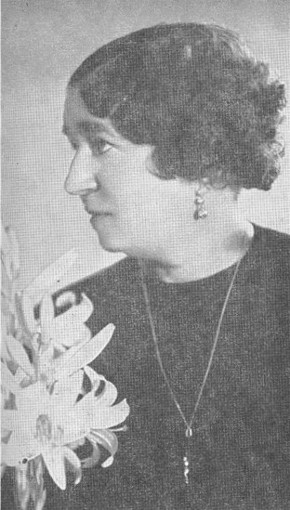Koroleva, Natalena
Koroleva, Natalena [Королева, Наталена] (née Dunin-Borkowska), b 3 March 1888 in San Pedro-de-Cordena near Burgos, Spain, d 1 July 1966 in Mělník, Czechoslovakia. Writer. She grew up in Spain (home to her aristocratic Spanish mother), Ukraine, France, and Italy; she later described her years spent in Kyiv when she attended the Institute for Daughters of the Nobility in her novel Bez korinnia (Without Roots, 1936). She studied archeology and history in Paris, Saint Petersburg, and Rome; and took part in archeological excavations in Pompei, Alexandria, Armenia, and Iran. During the First World War she volunteered as a Red Cross nurse and was seriously wounded. She immigrated to Czechoslovakia in 1919, joined the diplomatic mission of the Ukrainian National Republic in Prague as a translator, and later married Vasyl Koroliv-Stary. Her first works were written in French and appeared in 1904. In 1919 her first story in Ukrainian was published in the weekly Volia (Vienna). Some of her writings are based on her historical and archeological studies. Her works consist of autobiographic stories, recollections, legends, and exotic stories set in biblical or medieval times in such places as Caucasia or Persia. Among them are the collection Vo dni ony (Once upon a Time, 1935), the novella 1913 (1935), the collection Inakshyi svit (A Different World, 1936), the autobiographic novella Bez korinnia (Without Roots, 1936; 3rd rev edn, 1968), the historical novel Son tini (A Dream of a Shadow, 1938), the collection Legendy starokyïvs’ki (Ancient Kyivan Legends, 2 vols, 1942–3), and the historical novellas Predok (An Ancestor, 1961) and Quid est veritas? (1961). Many of her stories appeared in Western Ukrainian and émigré periodicals, particularly in the journal Dzvony. She also translated works into Ukrainian, including Thomas à Kempis's Imitation of Christ (1923). The majority of her writings appeared in Ukraine in the compilations Bez korinnia (2007) and Tvory (Works, 2010).
[This article was updated in 2010.]

.jpg)
.jpg)
.jpg)
.jpg)
.jpg)